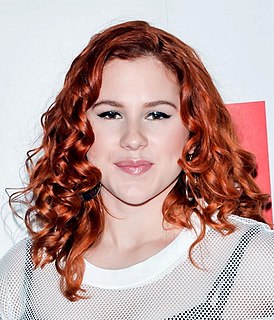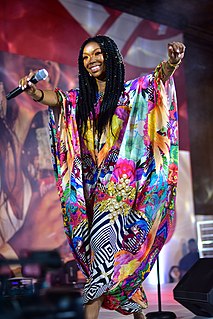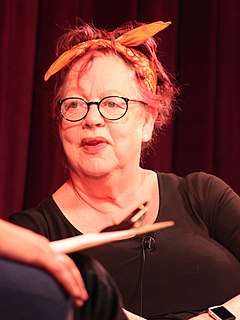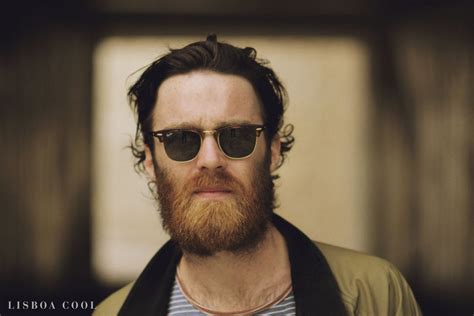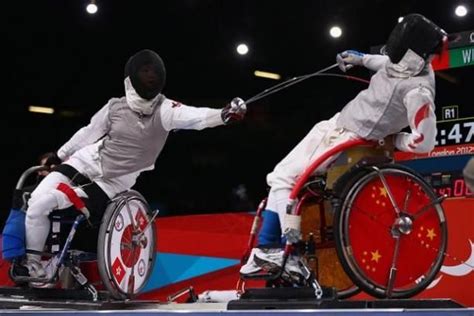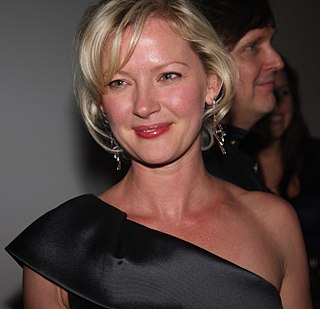A Quote by Chris Thile
I think people are largely proud of being musically on the risk. Any time you talk to someone about music, I feel like everyone is kind of always underlining just, you know, how voracious their appetites for various things are.
Related Quotes
I think any information about any type of art form, it's always the right time. But since the last one, I could see there were many things about the culture of DJing that we don't really talk about. We don't really look at how the music is made, how it's conceptualized, how it's put together. We talk about the equipment and the software, but we don't talk about the reasons why we put the music together in the first place.
I always wanted to have a young female artist that would tell me the truth about life and not only talk about the good things or the things that were exciting or interesting but also talk about the things that people in general are skeptical to talk about- the bad things that do happen. A good 50% of our lives is things that are happening that we're not necessarily super thrilled about and I feel like that's missing from pop music a lot of the time so my main goal is to be truthful about everything and not just specific things.
I can't judge how another person does their [music] work. Everyone has a choice and the music industry is much more open that it was when I was younger. Certain things are gone, others have developed, but everyone makes their choices. Pop music has always been about the mainstream and what appeals to the public. I don't feel it's my place to judge. I just look at things as a fan, I like or or I don't like it.
To spend any time with someone who is among the top five film composers of the last 50 years is pure gold dust. I mean, not necessarily stylistically, because everyone is different in what their music sounds like, but the approach and how to look at a film, how to think about a film, how to decide what you want to do, how to think about characters, how to think about art, how to think about narrative, how to liaise with producers, how to liaise with directors.
I don't think people talk about mental illness a lot, but they need to know it's OK to talk about how they are feeling. People are afraid of telling the truth because they think it's going to hurt everyone around them. I've kept so much inside that I've literally lost it. I wish more people would get help when they feel like they need it-- not just to look to medicine, but to the support of others.
It'd be negligent to say that I don't want to be at the top of the charts. Of course I do, it's proof that your song is being heard. But I think it's more about the work for me and being proud of what I'm doing in music than what people think about my music. I want to like my music before you like it. I don't want to sell anything that I don't really like. I don't want to sell myself short just to get to the top of the charts. It doesn't feel that great. Feeling proud of your work feels greater than being at the top of the charts.
I know there are certain men that hate women or don't like women, and in order to make women feel small, they tend to isolate them when they bully them. And women are often humiliated by it and feel they can't do anything about it. So my advice to women would be: there's always support around for those sorts of things and if you feel you're isolated in any way, or being bullied, you must talk to someone about it.
Every time you hear anyone talk about the Caribbean, whether it's Caribbeans themselves or people outside, there's always talk about women's bodies. Talk about this voluptuousness, this kind of stereotype of what a Caribbean person is. And I think these are stereotypes that even people inside the culture, we actually sometimes claim them and we're very proud.
I think it's really important to not talk about how you're going to release something until you've finished it. People are like, "What are we going to make? What are we going to do with it?" and it's just like, "I don't know, we're just making music. Then we'll talk." You can't always write something you're happy with; you can't force it.
Interesting thing that is happening in American society is that people are starting to talk about money. I don't know how you feel about this, but for a long time, nobody was talking about money. It was a secret. And it's kind of very interesting because we do lots of stuff to portray to people about how much money we have, the clothes we wear and the cars we have and the house - they all kind of depict to other people, signal how much money we make, but we don't talk about it specifically.
I am so proud of being a Paralympian because I think the Games are a very good platform for disabled persons to perform themselves. Within the Paralympics movement, it's not just talk about excellence; it's not just talk about the competition. It's also talk about the equality and how your world accepts those disabled people.
Being a doctor, I worry that the patient may be uncomfortable about sharing something. It could be sexual dysfunction, an eating disorder, depression, domestic violence - these are serious topics many people don't want to talk about. I'll try to follow up with questions like: How are things at home? How's work? But we don't always have time to probe. Don't be afraid to bring up the important things going on in your life, even if they don't feel 'medical.' Your doctor would rather know than not know.





